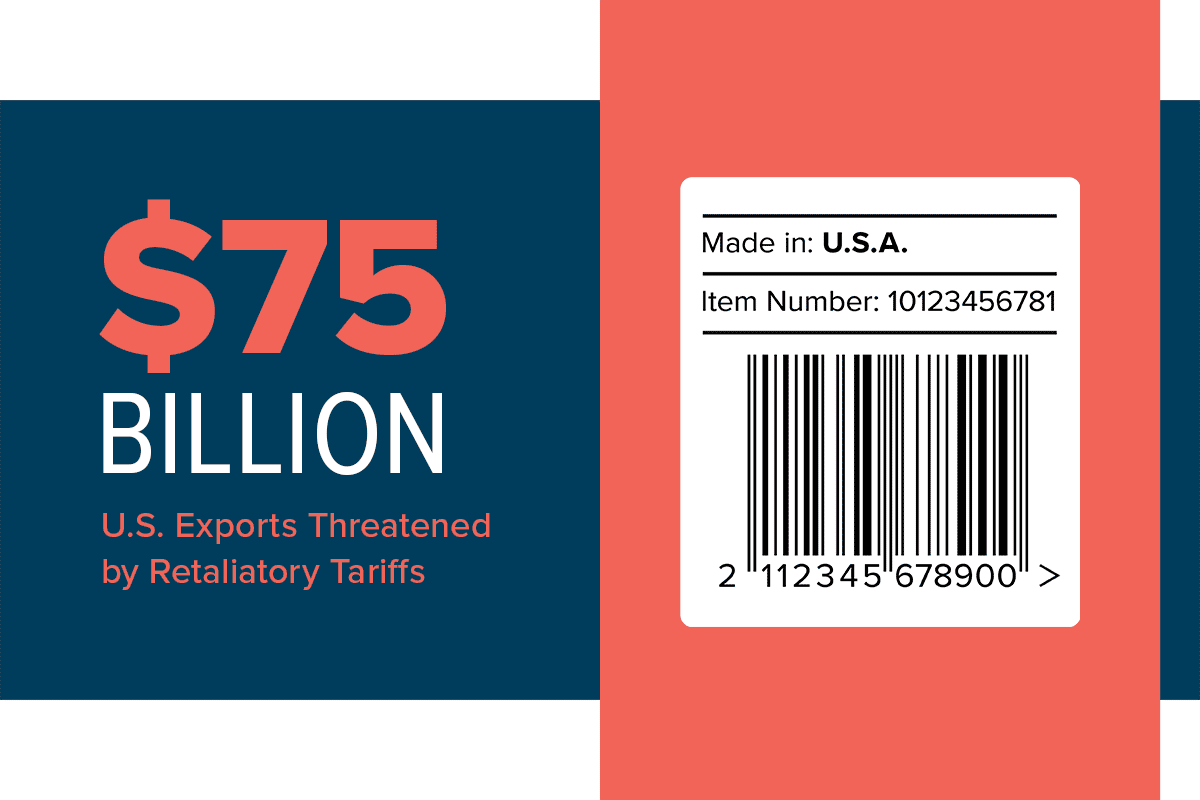Published
July 16, 2018
The evidence is stacking up and the word is spreading: Tariffs are a major financial strain on American consumers and businesses alike. The Trump administration has slapped billions of dollars worth of tariffs on imports from around the world, provoking retaliatory actions from other nations and boomeranging back to hit our own people. A new analysis and online interactive map by the U.S. Chamber of Commerce show the state-by-state impact of this brewing trade war on American businesses, farmers, and consumers – and it isn’t pretty.
As of last week, approximately $75 billion worth of U.S. exports are now subject to retaliatory tariffs, which will make American-made goods more expensive, resulting in lost sales and ultimately lost jobs across the country. Texas, for example, could see $3.9 billion in exports subjected to tariffs, with pork and whiskey among the hardest hit. Alabama could see $3.6 billion in exports affected, including auto parts and steel.
The tariffs have gone from political to personal for many, and local news coverage has begun to tell their stories. In New Mexico, local outlet KRQE highlights how Canada’s retaliatory trade tariffs against the U.S. are costing New Mexico’s salsa and chili industry hundreds of thousands of dollars. “It’s always concerning when there are tariffs or price increases when it comes to items we use for our salsa,” says Gilbert Sanchez, general manager of a salsa producer in Albuquerque.
In Michigan, Ken Nobis has spent 50 years working on his family dairy farm, but today his business is under pressure as Canada, China, the EU, and Mexico have all targeted the cheese and dairy industry with regulations and extra duties in response to U.S. tariffs. According to Nobis, “People feel dejected and depressed, and you can see it on their faces.”
These stories are echoed by countless others in states nationwide. In Wisconsin, producers of cheese, cranberries, and toilet paper are being hit hard. In South Carolina, manufacturers of autos, lawn mowers, and numerous other goods are reeling.
The cumulative effect of the retaliatory tariffs could eventually stunt the economic progress our country has worked so hard to achieve. To stop the pain and end the strain on consumer budgets, it’s time for the administration to reverse course and adopt smarter approaches for addressing trade concerns around the world.
About the author

Thomas J. Donohue
Thomas J. Donohue is advisor and former chief executive officer of the U.S. Chamber of Commerce.





